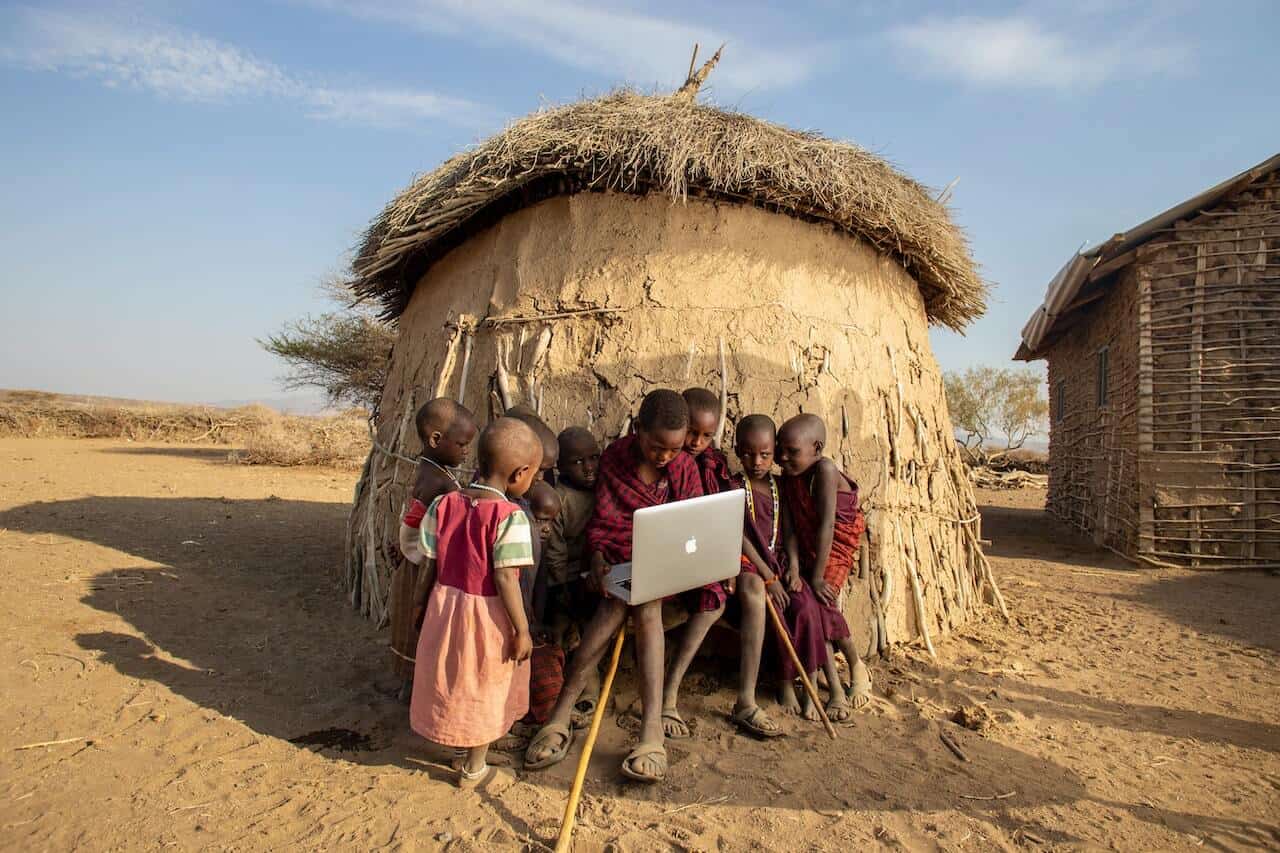Literacy practices involve any activities (cultural, mental, or social) that children engage into, which lead to or support the learning of reading and writing. Community literacy practices lead to literacy acquisition among children in ways that do not involve formal schooling.
Literacy practices in communities are embedded in cultural and social activities that people engage in daily.
It is not uncommon to view literacy as something people do when they read their newspapers, books, menus, and other forms of print. This is conventional literacy. Conventional literacy is basically defined as reading and writing (Mkandawire, 2018). This definition is based on Western literature and scholarship (Kaunda, 2022).
So, people who can read and write are referred to as literate while those who cannot are called illiterates. The illiterates mainly fall in the category of those who fall outside the mainstream western worldviews of literacy.
However, this is an unfair way of looking at literacy because it makes one group, the so-called illiterates, look uncivilized. This stereotype is worse when considering people who live in rural or remote areas, far from urbanized and westernized cities.
In this article, I present part of the findings from a research study I conducted in one of the rural communities in Zambia. The aim of the study was to explore ways in which rural communities helped their children acquire early literacy skills, behaviors, and attitudes.
1. Literacy Practices and Dance
One of the major findings of this study was that literacy practices were embedded in rural cultural activities. When I asked the village headman whether the village arranged any community-based interventions to promote oral language, his response was as follows:
Long time ago, after hard work, they (villagers) would assemble in the evening to dance insomba (a traditional dance) and sing, those who were energetic. They still do dance and perform different activities.
Village Headman
From what the village headman said, it was clear that cultural activities such as dance were important in the early literacy development of children. The village headman further talked other traditional dances which were organized for nearby and all surrounding villages to contest for a prize.
These activities in themselves were practices that helped children to develop language, motor skills which are important for eye-hand coordination and the norms of the community.
However, the village heads complained that this custom was slowly fading away as a new lifestyle was being ushered into the community. You can learn more about how children acquire early literacy through social interactions here.
2. Literacy Practices in Games and Songs
In this village, the use of interactive language games and song singing as part of a daily routine (that is during those games and after) also provided opportunities for children to enhance their repertoire of developing literacy skills.
Songs and rhymes in the songs they sang provided opportunities to develop listening comprehension and speaking skills which in turn are key to the development of vocabulary, letter identification and knowledge, and phonological awareness.
These songs were equivalents to ‘learning’ songs sung in preschool school which include alphabet songs. Learning songs in preschool, as with traditional songs children in this rural community sang, provided children with examples of rhyme, rhythm and repetition and may act as an effective memory aid (Zimba, 2011).
The presence of these activities within the community meant that children benefited from what was happening in the villages and went to school with plenty of language skills necessary for conventional literacy learning. You can learn how to use songs to teach literacy here.
Stories were passed down by elders orally as oral literature which taught mental development and critical thinking skills. Research findings show that some evenings were devoted to songs.
3. Literacy Practices and oral activities
Further, it was established in this study that children met with others from the neighboring houses to learn and participate in oral play activities such as folktales, riddles, proverbs, and idioms. This situation presented a similar context to what was happening in rural Botswana.
In Botswana, Mathangwane & Arua (2006) found that children used to learn folktales, riddles, proverbs, and idioms at home from their elders.
In Zambia, this study established that riddles came in form of competition. The competition was some form of a game to find out who can think fast and use imagination to guess the answer. Therefore, riddles were tools for mental growth.
Some Bemba riddles are questions which are in the form of a statement, for example: Ing’anda ya bamayo iyabuuta iyabula umwinshi (My mother’s white house which has got no door), the answer is ‘an egg’. One group says the riddle and the other one supplies the answer.
The aim is to test one’s imagination of associating things within a short time. The answers must be given quickly or else the group loses its chance.
4. Literacy Practices and Drama
Another aspect which was observed among the people in the community where this study was conducted was the use of drama used drama to disseminate information to the community by the Local Health Centre.
This was cardinal as children picked up this practice and acted out the roles on their own.
Combined with the normal daily routine play, called ukubuta, which they did, this dramatic act was seen to be important as far literacy acquisition is concerned.
Dramatic acts, just as dramatic play which is also called symbolic play, socio-dramatic, pretend, imaginative, or make-believeplay has been of most interest to literacy researchers as well as the researcher of this study.
A central characteristic of this type of play is that children use make-believe transformations of objects and their own identities to act out scripts that they invent. This line of work is based on the general premise that dramatic play is an arena for developing general representational skills that are eventually applied in other domains, including reading and writing (Pellegrini and Galda, 1991).
Different aspects of play may be important in emergent reading and writing. Naturalistic observations of children’s spontaneous dramatic play have indicated that children often incorporate literate behaviors as part of the play scripts they invent.
In general, this study offers a positive view of play as providing opportunities to build important cognitive and linguistic skills needed by emergent readers and writers.
Conclusion
Rural communities cannot be considered illiterate for not knowing how to read and write. Literacy should be broadly defined to include other ways people use language. In addition, further research is necessary for establish Indigenous literacy practices.
References
Kaunda, R. L. (2022). Developing children’s early literacy in Zambian preschools: A postcolonial exploration of preschool teachers’ beliefs, understandings and practices [Thesis, The University of Newcatle]. Newcastle.
Mathangwane J. T. and Arua E. A. (2006). Family literacy: attitudes of parents towards reading in rural communities in Botswana. The Reading Matrix. Vol. 6(2)
Mkandawire, S. B. (2018). Literacy versus Language: Exploring their Similarities and Differences. Journal of Lexicography and Terminology, 2(1), 37-55.
Pellegrini, A. D., and Galda, L. (1991). Longitudinal relations among preschoolers symbolic play, metalinguistic verbs, and emergent literacy. In J. Christie (Ed.), Play and early literacy development (pp. 47–67). Albany: State University of New York Press.
Zimba T. M. (2011). Emergent literacy support in early childhood education in selected preschools in Kasempa and Solwezi districts of Zambia. Masters Dissertation, University of Zambia, Lusaka








Great piece. I’d add apprenticeship on that list as one of the literacy avenues.
You afre right, apprenticeship is one of the most popular ways in which rural communities and Indigneous Africans inititae their young ones into the world of work, community development and societal growth.